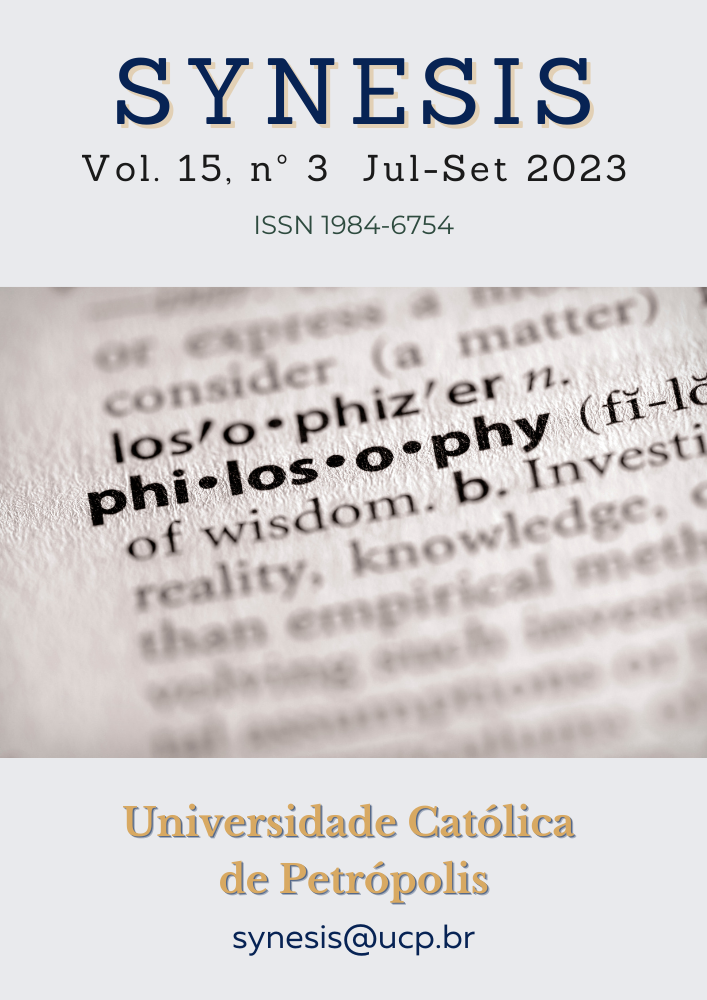Resumo
O artigo revela os fatores que determinam a necessidade de estudar os fundamentos profissionais da formação de professores. São determinados os pré-requisitos teóricos e práticos para o desenvolvimento das bases profissionais da formação de professores. A escolha de uma abordagem metodológica para o estudo dos fundamentos profissionais da formação de professores é fundamentada. O conteúdo do conhecimento sobre a profissão “professor”, inserido no sistema de formação pedagógica, está fundamentado. São divulgados os princípios e condições para a inclusão de conhecimentos sobre a profissão "professor" no conteúdo, organização e avaliação dos resultados da formação de professores.
Referências
European Parliament. (2022). Russia's war against Ukraine: Ukrainian students in the EU.https://ukraine.europarl.europa.eu/cmsdata/250612/0134_Briefing_Ukrainian_studen ts.pdf.
Vladimirova V.I. (2018). Innovative technologies in the system of training future lawyers. Proceedings. Series: Law. Issue 5. рр.15 - 21. [In ukranian]
Bystrova, Yu. (2015). Innovative teaching methods in higher education in Ukraine. Pravo ta innovatsiine suspilstvo, 1(4), 27–33
Kim,T. (2017). Academic mobility, transnational identity capital and stratification under conditions of academic capitalism. Higher Education, 73, 981–997. Available at: https://doi.org/10.1007/s10734-017-0118-0
Liu,D., Che,S.,& Zhu,W. (2022). Visualizing the Knowledge Domain of Academic Mobility Research from2010 to2020: A Bibliometric Analysis Using Cite Space. SAGEOpen.Availableat:https://journals.sagepub.com/doi/10.1177/21582440211068510
Liu,S., Liang,W., Onuma,M., & Rithkerd,T. (2022). A study of the academic challenges faced by the Western students in Chinese universities. International JournalofEducationalDevelopment,90.Availableat:https://doi.org/10.1016/j.ijedudev.2022.102557
Silva,M., Arruda,M., Zwierewicz,M., Stefenon,S., Ferreira,F., Klaar,A., & Yamaguchi,C. (2020). The Mobility of Professors in Performing Distance Education Activities. International Journal for Innovation Education and Research, 8(4), 514–526. Available at: https://www.academia.edu/es/45194773/The_Mobility_of_Professors_in_Performing_Distance_Education_Activities
Stoicheva,M. (2022). Academic Cooperation and Mobility: in the Context of the COVID-19 Pandemic. “Az-buki” Newspaper, 94(3), 25–33. Available at: https://doi.org/10.53656/ped2022-3s.02
International Journal of Environmental Research and Public Health, 18(16), 8673. https://doi.org/10.3390/ijerph18168673
Freudenberger, H.J. (1975). The staff burn-out syndrome in alternative institutions. Psychotherapy: Theory, Research & Practice, 12(1), 73–82. https://doi.org/10.1037/h0086411
Grant, A.M. (2013). Outsource inspiration. In J.E. Dutton, & G. Spreitzer (Eds.), Putting positive leadership in action. Retrieved from https://faculty.wharton.upenn.edu/wp- content/uploads/2013/12/Grant_OutsourceInspiration.pdf
Jiang, X-R., Du, J-J., & Dong, R-Y. (2017). Coping style, job burnout and mental health of university teachers of the millennial generation. Eurasia Journal of Mathematics Science and Technology Education, 13(7), 3379–3392. https://doi.org/10.12973/eurasia.2017.00734a
Keller, J., & Kesberg, R. (2017). Regulatory focus and human values. Psihologija, 50(2), 157–186. https://doi.org/10.2298/PSI160809004K
Mancini, G., Mameli, C., & Biolcati, R. (2022). Burnout in Italian Primary Teachers: The Predictive Effects of Trait Emotional Intelligence, Trait Anxiety, and Job Instability. Europe’s Journal of Psychology, 18(2), 168–180. https://doi.org/10.5964/ejop.2685

Este trabalho está licenciado sob uma licença Creative Commons Attribution-NonCommercial-NoDerivatives 4.0 International License.
Copyright (c) 2023 Synesis (ISSN 1984-6754)
